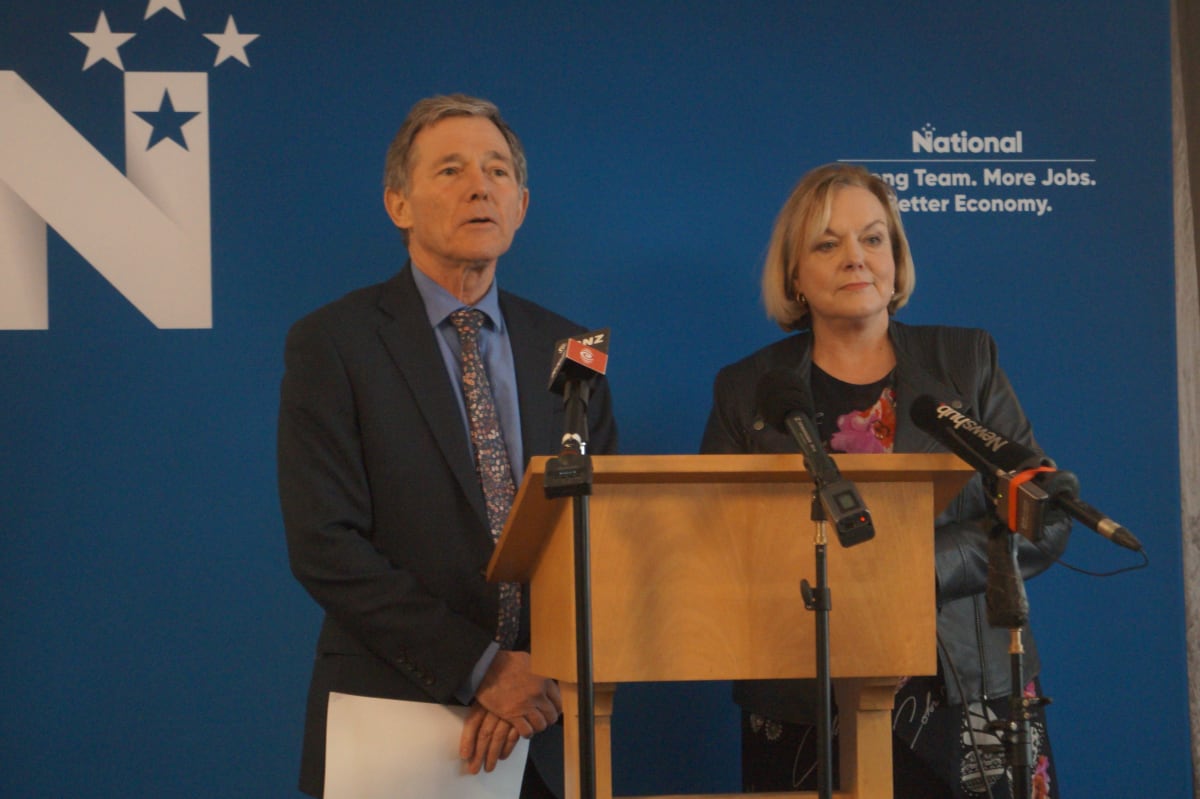The National Party has released its list rankings for the 2020 election, with the ascent of new candidate Nancy Lu and the demotion of incumbent Alfred Ngaro the biggest talking points.
National leader Judith Collins and party president Peter Goodfellow revealed the list in Wellington on Saturday afternoon, with the party facing an uphill battle to bring in any new faces – along with a good chunk of its current caucus – on current polling.
Lu, a chartered accountant from Auckland who has worked at PwC, EY and Fonterra, is the highest-ranked new candidate on the list in 26th place, placing her ahead of 17 current MPs.
She is also a board member for the Chinese New Settlers Services Trust, an organisation which provides support to new Chinese arrivals to New Zealand and receives a glancing mention in Magic Weapons, China expert Anne-Marie Brady’s paper about Chinese influence efforts in New Zealand.
The party’s only current Chinese MP, Dr Jian Yang, is retiring at the September 19 election, having previously come under scrutiny after a Newsroom investigation revealed his links to Chinese spy agencies had attracted the interest of New Zealand’s Security Intelligence Service.
National’s Christchurch Central candidate Dale Stephens (in 29th place) and Napier candidate Katie Nimon (45th) take the next two highest spots for new arrivals.
Former Air New Zealand chief executive and Botany candidate Chris Luxon, mentioned as a potential prime minister, will have to win the true-blue seat held by rogue MP Jami-Lee Ross if he is to enter Parliament after being ranked 61st.
Goodfellow said Lu’s strong experience in the private sector and “great connections into the Chinese community” were among the reasons for her elevation.
Incumbent list MP Ngaro has fared less well, with his list ranking of 30th representing a drop of 11 places from Collins’ current caucus rankings.

The National leader would not disclose any specific reasons for the low spot, citing the confidentiality of selection processes, but said she was confident Ngaro could wrest the Te Atatū electorate from Labour’s Phil Twyford at the election despite the incumbent winning with a margin of more than 3000 votes in 2017.
“I think anybody can beat Phil Twyford, particularly if they’ve got a blue ribbon on them.”
Asked about how the desire for diversity factored into the rankings, Collins said: “We always look at it from the point of view of the merits, the talent, the hard work, work ethic generally…these are all things we take into account, and also it is important to represent New Zealand and we have gone some way to make sure that we do.”
She pushed back at a suggestion the party’s current polling meant it was likely to lose a large number of experienced incumbents, saying that was “thinking too negatively”.
“We’ve got some great MPs, future MPs coming through and I think that you’re going to see that we’re going to keep our existing ones plus more.”
National’s yet to be selected Auckland Central candidate has been put in 66th place, with the process to replace Nikki Kaye the subject of some controversy – including a legal threat from one of the nominees.
Goodfellow said he did not believe the problems had damaged the party’s chances of retaining the seat, although he acknowledged whoever was chosen would have to run “a pretty quick campaign” after the final selection meeting on Monday night.
“The most important thing is for us to get the candidate selected, get them in front of the public and get the support also, obviously of the existing MP and leave it to the voters to decide. I don’t believe any of those things [selection problems] are of great value to the local voters – they’re interested in the stuff that really matters to them.”
He “completely rejected” the suggestion that the party hierarchy had become too involved in helping favoured candidates towards winning selection.



